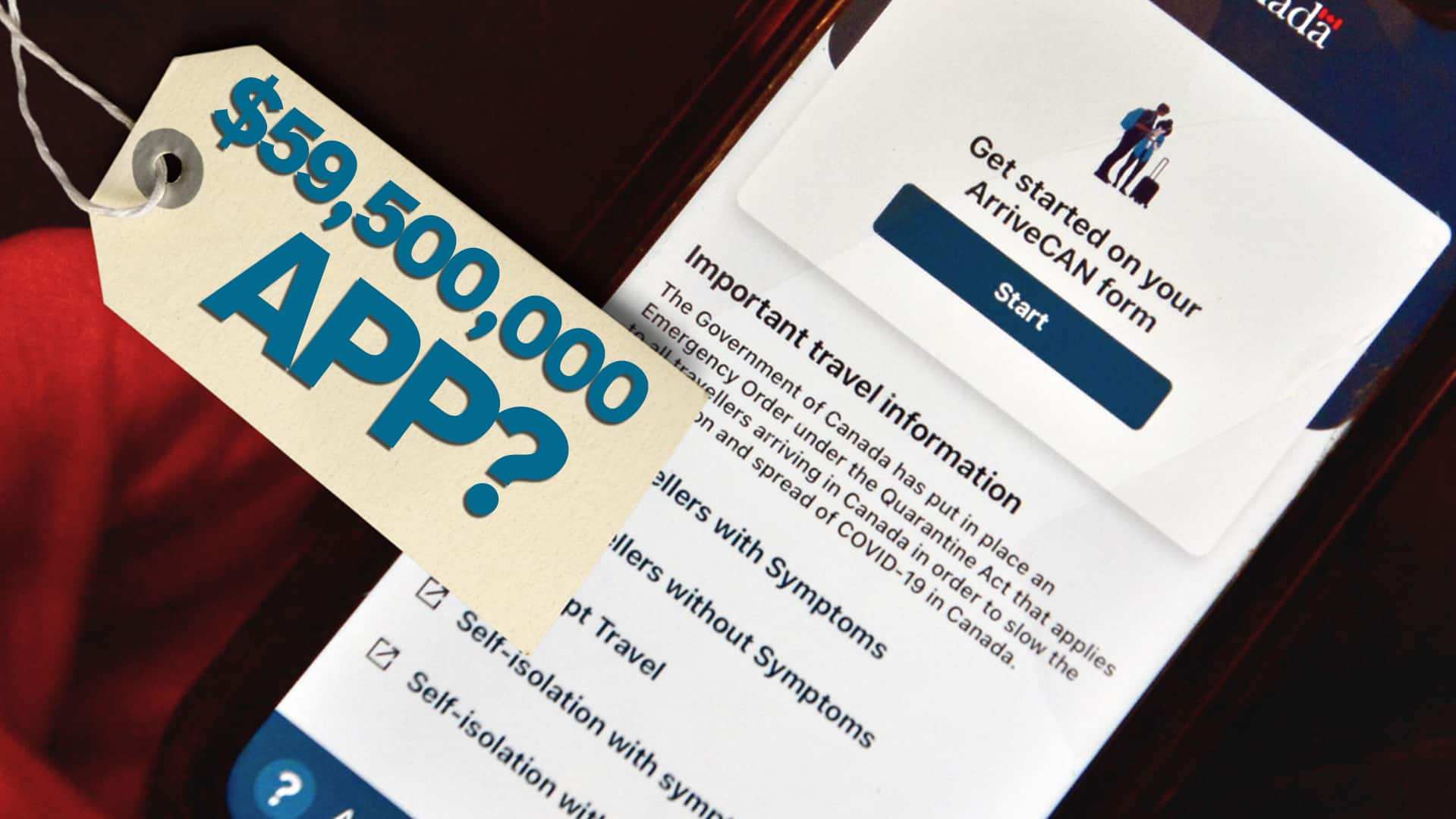One of the partners at GC Strategies is rebutting an auditor general’s report that suggests his firm earned $19 million for the ArriveCan application, arguing that the government’s poor record-keeping inflated that estimate.
Kristian Firth is appearing today before the House government operations committee. It’s the first time he’s made public comments since Auditor General Karen Hogan released her report on ArriveCan last month.
Hogan’s report estimated the total cost of the ArriveCan app at just under $60 million and said the government’s over-reliance on outside contractors contributed to the project’s ballooning costs.
GC Strategies was the contractor that received the most money for the project. But Firth told the committee that his records indicate his firm received only $11 million for ArriveCan, not the $19 million cited by the auditor general.
When asked why his math differed from Hogan’s, Firth blamed the government’s contracting process and record-keeping.
“There were three COVID-19 pandemic contracts. There was not one that was solely set aside for ArriveCan. So I can understand why it was hard for the auditor general,” Firth said.
In a scathing new report, Canada’s auditor general says the final cost of the ArriveCan app is ‘impossible to determine’ due to poor record-keeping by the Canada Border Services Agency. Andrew Chang breaks down the report’s findings about this pandemic-era tool that is estimated to have cost Canadians nearly $60 million.
Hogan noted in her report that the final cost of ArriveCan was “impossible to determine” due to poor financial record-keeping at the Canada Border Services Agency (CBSA). Firth agreed with that assessment
“There’s lots of reasons why there could be discrepancies. We understand the financial systems and the codes aren’t the best at CBSA,” he told the committee.
He also suggested that some CBSA officials may have added an ArriveCan label or “tagged” other projects as being related to ArriveCan in order to secure funding.
“No one knows if it’s ArriveCan or not because of how it’s recorded internally,” he said.

Hogan said she found little in the way of documentation to show how or why GC Strategies was chosen to work on ArriveCan.
The company was given a sole-source contract in April 2020 despite a lack of evidence that the firm had provided a proposal document for the project, Hogan’s report said.
Firth said it was Public Services and Procurement Canada that reached out to his firm initially.
Hogan also reported that GC Strategies was involved in developing requirements that were later used for a competitive contract. That contract — valued at $25 million — was awarded to GC Strategies, the report says.
Roch Huppé, Canada’s comptroller general, told the House public accounts committee last week that GC Strategies and its predecessor, Coredal, have been awarded 118 contracts totalling $107 million since 2011.
But Firth insisted that he and his partner, Darren Anthony, were not involved with Coredal prior to 2015. He said the two bought the company that year and that he had worked for a different firm between 2007 and 2015.
The government suspended all of its current contracts with GC Strategies in November. Last week, Public Services and Procurement Canada (PSPC) announced that it had suspended GC Strategies’ security status, effectively banning the company from bidding on new contracts with security requirements.
A previous report by Alexander Jeglic, Canada’s procurement ombudsman, found that the criteria used in awarding the $25 million contract were “overly restrictive” and “heavily favoured” GC Strategies.
Jeglic also found that GC Strategies “copied and pasted” government-listed requirements for subcontractors on numerous occasions when submitting proposals to CBSA officials.
